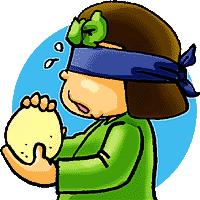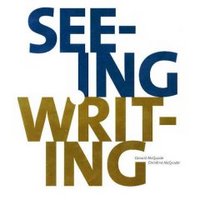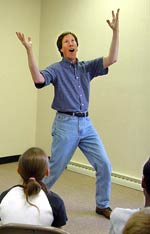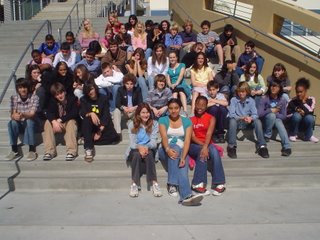Experiments in Writing #6: Friday, April 28th
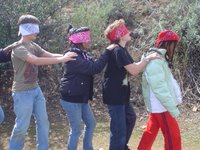 Blindfold Trust Walk
Blindfold Trust WalkThis exercise demands your utmost concentration, whether you are a “blind person” or a guide.
As a guide, your responsibility is to lead and protect your partner through the experience of not-seeing. Maintain voice contact, but speak as little as possible. Guide by touch only when necessary to keep your partner from danger or to lead him to a specific spot that you wish her to experience. When you have led your partner for five minutes, STOP, and switch roles.
As the blindfolded person, explore! Walk around, listen, smell, touch, feel. Feel the air currents and changes in temperature, feel the floor beneath you, the walls, the textures of things you encounter. Tune in, also, to how it feels to be unseeing -- what feelings do you have, including feelings toward your guide?
When you have finished, return immediately to the room and WRITE. In the usual, free-flowing way, try to write down as many of your sensory impressions as you can remember from the time you were blindfolded: sounds, smells, and textures, as well as your feelings during the exercise and your feelings now, in looking back at the experience.

